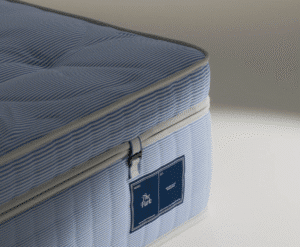How to Get Better Sleep with Fibromyalgia: 7 Quick Changes
If you’re seeking ways to achieve better sleep with fibromyalgia, the struggle is all too familiar. Countless restless nights can feel insurmountable, leaving you exhausted and frustrated. However, improving your sleep quality is possible with some strategic changes. Here’s a detailed guide to help you navigate the path toward restful nights.
Establish a Consistent Sleep Schedule
One of the most critical steps in improving sleep is adhering to a consistent routine. Going to bed and waking up at the same time every day—yes, even on weekends—can help regulate your internal clock. This consistency reinforces your circadian rhythm, making it easier for your body to know when to rest.
Tips for a Consistent Sleep Schedule:
– Set Regular Bedtime and Wake Time: Choose times that suit your lifestyle and stick to them. Even if you had a poor night, resist the temptation to sleep in.
– Avoid Sleeping In: Sleeping late on weekends can throw off your sleep rhythm. Aim to wake up at your usual time each day, no matter how enticing that extra hour of sleep may seem.
– Adjust Gradually: If you need to shift your schedule, make small adjustments of about 15 minutes each day.
Expert Insight: Dr. Anca D. Askanase emphasizes the power of routine: “A person’s wake time can be a key indicator for their overall circadian rhythm, impacting when they feel sleepy the following night.”
Create a Sleep-Friendly Environment
Crafting a conducive space for sleep is essential, particularly for those with fibromyalgia. Here are a few modifications you can make:
– Dark Room: Block out as much light as possible. Blackout curtains are a worthwhile investment.
– Noise Control: Minimize disturbances by using earplugs or a white noise machine.
– Optimal Temperature: Keep the room cool, ideally between 60-67°F (15-19°C).
– Comfortable Mattress: A quality mattress, particularly one that can contour to your body, is crucial. For instance, memory foam options can help reduce pressure points.
Quick Tips for Your Sleep Environment:
– Remove electronic devices that emit light.
– Set your thermostat for a comfortable temperature.
– Consider using an aromatherapy diffuser with calming scents like lavender.
By optimizing your sleeping environment, you can cultivate the peaceful atmosphere that is essential for deep, restorative sleep.
Avoid Stimulants and Alcohol Before Bed
One surefire way to enhance your sleep is by steering clear of stimulants and alcohol in the evening. Both can significantly impact your ability to fall and stay asleep.
Caffeine:
– Cut Back Post-5 PM: Limit caffeine sources like coffee, tea, and sodas in the hours leading up to bedtime.
– Switch to Decaf or Herbal Teas: Consider herbal options like chamomile or peppermint as a soothing alternative.
Alcohol:
Though alcohol might seem relaxing initially, it disrupts your sleep cycle. Instead, opt for non-alcoholic alternatives, and save heavier meals for earlier in the evening to prevent discomfort.
Incorporate Relaxation Techniques
Integrating relaxation techniques can be a game-changer in how to get better sleep with fibromyalgia. These practices are designed to lessen stress and tension, facilitating easier transitions to sleep.
Effective Techniques:
– Meditation: Focus on your breath for 5-10 minutes before bed. Utilize guided apps like Calm or Headspace to enhance this experience.
– Deep Breathing Exercises: Inhale through your nose for four counts, hold for four, and exhale through your mouth for six. Repeat until you feel relaxed.
– Progressive Muscle Relaxation: Tense and then relax each muscle group, starting from your toes and moving upward.
– Warm Bath: Enjoy a bath infused with Epsom salts or calming scents for muscle relaxation.
– Gentle Stretching: Incorporate light yoga stretches to ease stiffness, ideally focusing on slower poses that allow for deep breathing.
By regularly practicing these techniques before bedtime, your body can learn to unwind more effectively.
Consider Sleep Medications and Supplements
Even with the best efforts, some individuals may require additional support, such as sleep medications and supplements. These can provide relief when other methods fall short.
Options to Discuss with Your Doctor:
– Prescription Sleep Aids: Medications may be necessary in specific cases. Always use them cautiously to avoid dependency.
– Natural Supplements: Melatonin can regulate sleep cycles. Start with a low dose (0.5-1 mg) before bed.
– Pain Relief: Consult your healthcare provider regarding pain medications that may also aid sleep.
Keeping a sleep diary can be instrumental in tracking your patterns, symptoms, and the strategies that work best for you.
Address Comorbid Sleep Disorders
Fibromyalgia isn’t just about chronic pain; it often comes hand-in-hand with other sleep disorders like restless legs syndrome (RLS) and sleep apnea. Addressing these conditions can lead to marked improvements in your sleep quality.
Restless Legs Syndrome (RLS):
Characterized by an irresistible urge to move your legs, RLS can be particularly disruptive. Treatment options include addressing possible deficiencies or consulting with your doctor about medications.
Sleep Apnea:
This condition involves breathing interruptions during sleep and can exacerbate fibromyalgia symptoms. A sleep study can effectively diagnose sleep apnea, leading to potential treatments such as continuous positive airway pressure (CPAP) therapy.
Engage in Regular, Timely Exercise
Exercise plays a pivotal role in enhancing sleep quality, especially for those managing fibromyalgia. Aim for light to moderate exercise to facilitate both physical and mental well-being.
Recommended Activities:
– Walking: Start with short distances and gradually increase as your endurance improves.
– Yoga and Tai Chi: These gentle practices offer stress reduction while improving flexibility.
– Pool Exercises: Water provides a low-impact option, easing concerns about joint pain.
By incorporating regular exercise, you not only improve your overall fitness but also boost your chances of enjoying a restful night’s sleep.
Conclusion
At Yawnder, we recognize that the right mattress can significantly enhance the quality of sleep for those battling fibromyalgia. Our thoughtfully selected range of mattresses offers optimal support and comfort, reducing pain and improving sleep quality.
Invest in a mattress that meets your needs while implementing these sleep strategies. By making these adjustments to your routine and environment, you can take meaningful steps toward achieving the restful sleep you deserve, easing the toll fibromyalgia takes on your life. Explore our selection today to help transform your nights into peaceful, restorative experiences.


















